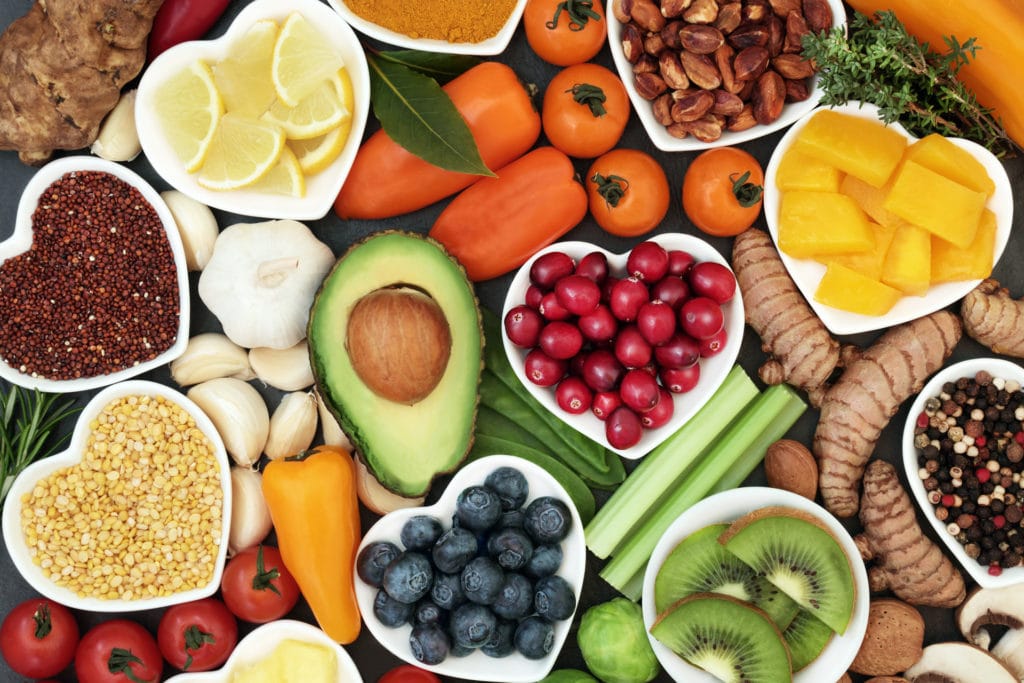May 1, 2021

As the weather improves and we have brighter, sunnier weather, it is often easier to make changes to our diet and lifestyle that are harder to make when the days are darker and the weather colder. Making changes to our diet can be hard to do, sometimes it is easier to do it with some support behind you. If you have been thinking about trying out a vegetarian diet, then this month might just provide the inspiration you need with National Vegetarian Week from the 10th to the 16th of May.
National Vegetarian Week is a great opportunity to commit to trying something new.
Awareness weeks such as this one mean there will be lots of media coverage including meal plans, features on how to integrate your meals into a family menu and how to follow new ideas without breaking the bank.
Run by The Vegetarian Society, this annual event aims to encourage individuals to take up the challenge of following a vegetarian diet for one week. We often hear about the health benefits of following a plant based diet, but there is also the consideration that a vegetarian diet is better for the planet too. This year, the focus is all about the effects that following a vegetarian diet can have on things such as carbon emissions and water usage.
Source: The Vegetarian Society
If you are looking for some recipe inspiration, try here or for some more or if you prefer recipes that are a little more elaborate with a touch of fine dining, try these created but Great British Chefs.
As always, a wide variety of different foods hold the key to having a balanced diet. A vegetarioan diet is no different, it is important to eat plenty of different food groups such as fresh fruit and vegetables, beans and pulses as well as grains, nuts and seeds. A vegetarian diet will usually contain dairy and eggs, but more and more plant based alternatives are appearing on the shelves if you wish to reduce those too.
Changing or sampling a different lifestyle can be so much more than just the food that you eat. If you or a family member decides to follow a vegetarian diet, you might then start thinking about other areas of your lifestyle including the food supplements you take.
Capsules are often made from gelatine, which is sourced from animals, but many manufacturers now use a plant based capsule that will still protect the integrity and stability of the ingredients in the capsule. This allows you to continue your supplement regime whilst still sticking to your vegetarian diet.
Certain supplements are also more commonly found from animal sources, including omega 3 oils give us the fatty acids EPA and DHA. These oils are usually derived from fish oil. The good news is that you can now obtain EPA and DHA from plant sources. Sustainably harvested micro algae provide a vegan source of these two essential fatty acids. 1000mg of Schizochytrium oil will provide 246mg of EPA and 316mg of DHA, that compares very favourably to a fish oil supplement.
Vitamin D is currently one of the most popular vitamins thanks to the fact that it contributes to normal immune system function. It is commonly sourced from either fish or from sheep’s wool, however, we are now able to source it from lichen too which provides a vegetarian and vegan source. Carefully harvested to ensure that the habitat is nor destroyed and so that it can be sustainable for future use, the lichen provides vitamin D as D3, the most easily absorbed by the human body. Along with supporting the immune system, research is showing us that vitamin D is used for healthy bones and teeth, mood balancing and healthy hormone responses.
Vitamin D is one of the most popular nutrients at the moment, it is now possible to get a vegetarian source from lichen.
A multi vitamin and mineral contains a wide range of nutrients and can be an important foundation for a nutritional regime. With such a wide range of ingredients from many sources, they might not all be vegetarian. Look for one that not only has meaningful doses of the nutrients in, but also that they are all from a vegetarian source.
If you are changing your diet and concerned that as you alter the types of food you are eating might cause you to miss out on nutrients, a multi vitamin and mineral formulation is a good way of ensuring you get a wide spectrum of nutrients to support your diet.
If you are changing your diet to a vegetarian one, how about changing your supplement too?
It is important to remember that not every regime will suit everyone, it is important to not let it stress you out and make life difficult. Sometimes, it is better to make smaller changes, maybe one or two vegetarian meals a week, especially if you are encouraging your family to take part. One step at time can have appositive impact on your health and that of the planet, don’t be afraid to keep it simple and manageable.
Back to Blog